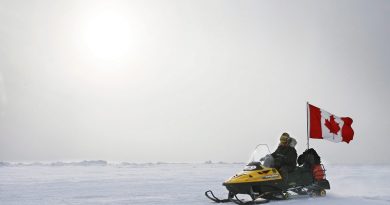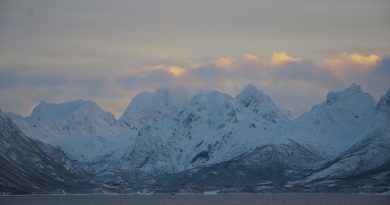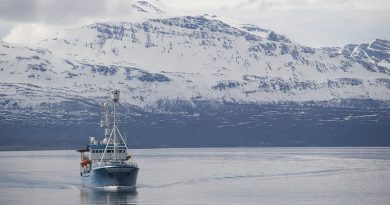Canadian National Defense Committee Report Eminently Sensible
Canada’s Parliamentary Standing Committee on National Defense issued its report on Arctic sovereignty last week. A result of months of witness statements and research, the report presented 17 recommendations, including:
- Creating a cabinet committee on Arctic affairs, consisting of relevant ministers and chaired by the prime minister.
- Re-establishing the office of Arctic Ambassador.
- Giving priority to resolving the dispute over the Beaufort Sea with the United States.
- Providing proper infrastructure, such as shore facilities, mapping and mandatory ice-experienced pilots, to ensure safe passage of vessels through Arctic waters.
- Ensuring that the Inuit be included in scientific research projects pertaining to the environment.
- Doing more to recognize the historic contribution of aboriginal people to Arctic sovereignty and acting on a priority basis to ensure the development and long-term maintenance of viable indigenous communities.
My previous blogs have focused on the problems, misdirections, or inadequacies of northern policy. But this report is eminently sensible, comprehensive and balanced. There is not much new here – every recommendation seems to come from either the CIC Arctic sovereignty papers, with contributions from Franklyn Griffiths, Rob Huebert and Whitney Lackenbauer; or Arctic Front: Defending Canada on the Far North, a 2008 book that won the Donner Prize for best book on Canadian policy (Ken Coates, Greg Poelzer, Whitney Lackenbauer and Bill Morrison). This fact is unsurprising since almost all of those academics were called as witnesses by the Committee. However the Committee has done a very good job of sifting through their testimonies, recommendations, and articles, and boiling down the report to the most important points.
The worst thing I can say about the report is that some parts are vague, particularly recommendations to enhance the Arctic Council/multilateralism and promote development of the North. Easier said than done! But then, it is not the job of this Committee to set policy. Hopefully the Departments of Foreign Affairs and Indian and Northern Affairs will take the ball and develop some innovative and constructive policies to advance these goals. Hopefully the PMO will actually fund them.
This is a good first step to developing a comprehensive Arctic policy (yes, a first step – the 2009 Northern Strategy is nothing more than a website devoted to previous announcements Harper had made on his summer vacations in the Arctic). The second step is action.



